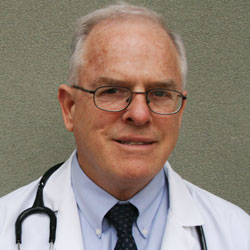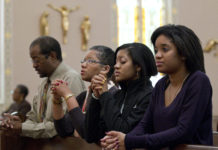
We used to talk more about dysfunctional families — those in which love was lacking due to a variety of circumstances. Dysfunction means not operating normally or properly. Most families actually were dysfunctional to a degree, yet fixable. Papa joined Alcoholics Anonymous. Mom went on medication for her depression. Financial counseling got money concerns more organized. Children, who suffered the most, often helped their parents grow up. Whatever, but dysfunctional families could and sometimes did improve.

Opinions expressed are the writers’ and not necessarily the views of The Catholic Sun or the Diocese of Phoenix.
Dysfunctional people mostly come from such families, thus society has an interest in helping them. But in the past dysfunctional families usually included children and mom and dad living together for better or worse till death. Today things are different.
Then and now
Now we’ve got 40 percent of children being born to unmarried mothers. This alone is a profoundly dysfunctional influence — consider the poverty. And there’s the insecurity and loss of a missing parent — even if it’s a dysfunctional one.
Within the first 20 years, 50 percent of couples now divorce, creating a similar dysfunctional environment with the added trauma of custody battles.
And our secular culture today includes raising children with the spiritual dysfunctions of relativism, non-church affiliation — or even atheism, radical feminism, a contraceptive-abortion mentality, pornography, occultism, new-age ideologies, and more, which are being abundantly proffered to them through the media, and even by their parents.
What is a dysfunctional adult?
Years ago we would have expected a promiscuous person, or a perpetual adolescent uninterested in marriage, or someone having no religion, or a healthy person living on welfare, or one who was somewhat dishonest, or someone prone to depression, to have likely come from a dysfunctional family. Today, all these behaviors could well be considered as within the range of normal. Therefore, we can well ask, how do you tell an adult who has been raised well today? One who mostly stays out of jail?
These considerations are important because just now, virtually every social researcher — at least who hopes to keep his job — has found that homosexual couples do as well raising children as actual parents. And this may even be true, considering many families today.
But the possibility exists that homosexual couples are not really able to be such good parents on several counts. Why? Because dysfunctional people beget dysfunctional families. Until 1975, it was not for nothing that homosexually active persons were regarded as having a mental affliction. This diagnosis was eliminated more from sentiment than science, but the facts remain that practicing homosexuals are often unhappy and dysfunctional people. They have more illness, more assaults, more substance abuse, shorter life expectancy, more imprisonments, more depression, more suicides, and more difficulty maintaining long term relationships than heterosexual people. (See comprehensive, well-researched “The Negative Effects of Homosexuality, “ Family Research Council, 2013. In 2008, a study published in the medical journal BMC Psychiatry found higher rates of substance abuse, depression and suicide among active homosexuals.)
Spiritual considerations
Active homosexuals tend to respond antagonistically toward orthodox Christianity, which condemns their behavior. So it seems unlikely they would raise their children in such a faith and likely there would be spiritual dysfunction. But such children might not look too different from families of heterosexual parents — even Catholics — who are contracepting, sterilizing, aborting, engaging in pornography, divorcing, and otherwise also separating themselves from God.
Even so, dysfunctional married people are fixable, ultimately able to live out their unitive and procreative vocation. Active homosexuals living a pretense of marriage are not. In spite of loving, or caring, or giving financial support, their fundamental relationship is spiritually disordered — therefore hopelessly dysfunctional. It is based on an anatomically and biologically incorrect counterfeit of the God-created marital embrace, and therefore blocks movement towards God.
Openness to life is meaningless in a practicing homosexual context, because it is impossible. And to try and make it so by artificial technologies, or insemination, is to forcibly remove God from any procreative act — as it would be for a normally married couple.
The heavy cross of homosexuality
Homosexuals wish to love and be loved, and to be considered like everyone else except for their same sex attraction. But when seeking married love through homosexual activity the unitive aspect of the relationship is disordered, and the procreative non-existent. They can therefore never give a child — or each other — the true equivalent of a marriage.
Theirs is a heavy cross to bear. Nevertheless, they are called to live — and will live most happily and normally — as chaste, single persons. And the rest of us are called to love and include them in our lives. Benedicamus Domino.




![[VIDEO] Make Sunday feel like Sunday again](https://www.catholicsun.org/wp-content/uploads/2021/04/2021-YOUTUBE-BISHOP-MESSAGE-THUMBNAIL-ENGLISH-218x150.png)
